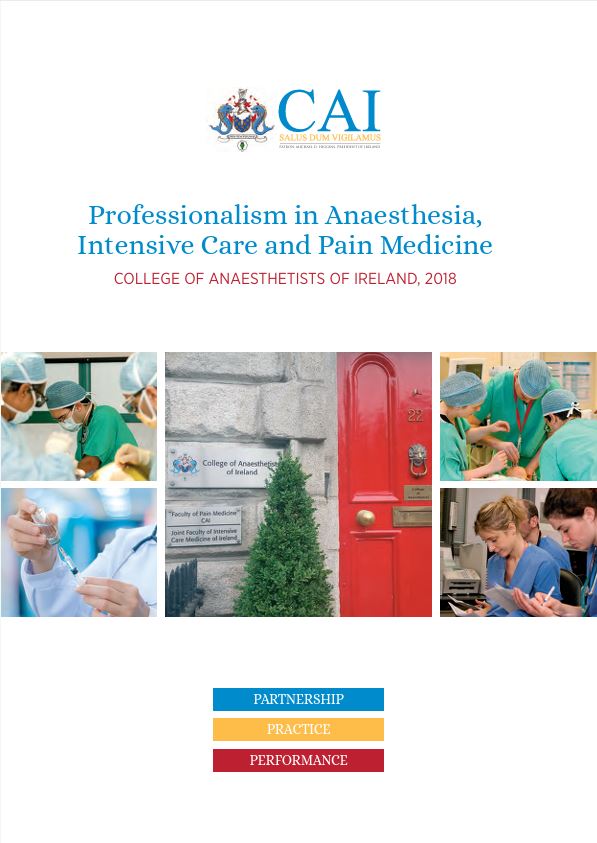
How CPD can support your professionalism and ethical practice Professional
Guide index
 Library > Library guides > Professional development hub > CPD for clinical support roles
Library > Library guides > Professional development hub > CPD for clinical support roles
Key areas to consider in planning your CPD in relation to professionalism and ethics include:
Practice evaluation (category 1)
Knowledge & skills (category 2)
 The college welcomes suggestions on additional resources and topics for CPD on professionalism and ethical practice.
The college welcomes suggestions on additional resources and topics for CPD on professionalism and ethical practice.Learn@ANZCA (formerly Networks) is the college's learning management system.
 Note: Some resources located in Learn@ANZCA require that you first register before accessing.
Note: Some resources located in Learn@ANZCA require that you first register before accessing.

 Supporting Professionalism and Performance: A Guide for Anaesthetists and Pain Medicine Physicians 2024
by
The guide aims to assist fellows and trainees by providing a framework for understanding professionalism and performance as it applies to the practice of anaesthesia and pain medicine. The structure mirrors the ANZCA and FPM roles in practice and builds from the curriculum frameworks of the anaesthesia and pain medicine training programs under each of these roles.
Supporting Professionalism and Performance: A Guide for Anaesthetists and Pain Medicine Physicians 2024
by
The guide aims to assist fellows and trainees by providing a framework for understanding professionalism and performance as it applies to the practice of anaesthesia and pain medicine. The structure mirrors the ANZCA and FPM roles in practice and builds from the curriculum frameworks of the anaesthesia and pain medicine training programs under each of these roles.







 Ethics in the Boardroom: A Decision-making Guide for Directors
by
Ethics in the Boardroom: A Decision-Making Guide for Directors is designed to support directors in considering ethical issues as they discharge their duties.
Ethics in the Boardroom: A Decision-making Guide for Directors
by
Ethics in the Boardroom: A Decision-Making Guide for Directors is designed to support directors in considering ethical issues as they discharge their duties.
 Good Medical Practice: A Code of Conduct for Doctors in Australia
by
Good medical practice (the code) describes what is expected of all doctors registered to practise medicine in Australia. It sets out the principles that characterise good medical practice and makes explicit the standards of ethical and professional conduct expected of doctors by their professional peers and the community.
Good Medical Practice: A Code of Conduct for Doctors in Australia
by
Good medical practice (the code) describes what is expected of all doctors registered to practise medicine in Australia. It sets out the principles that characterise good medical practice and makes explicit the standards of ethical and professional conduct expected of doctors by their professional peers and the community.
 Good Medical Practice [New Zealand]
by
A doctor's first concern is to take care of their patient, and to do so with respect, honesty and professionalism.
Our "Good Medical Practice" publication sets out the principles and values that define good medical practice, and provides guidance to doctors on the standards we expect of them in all aspects of their professional behaviour.
Good Medical Practice [New Zealand]
by
A doctor's first concern is to take care of their patient, and to do so with respect, honesty and professionalism.
Our "Good Medical Practice" publication sets out the principles and values that define good medical practice, and provides guidance to doctors on the standards we expect of them in all aspects of their professional behaviour.
 Professionalism in Anaesthesia, Intensive Care and Pain Medicine
by
Professionalism in Anaesthesia, Intensive Care and Pain Medicine
by
Quick links
About ANZCA
Copyright © Australian and New Zealand College of Anaesthetists.